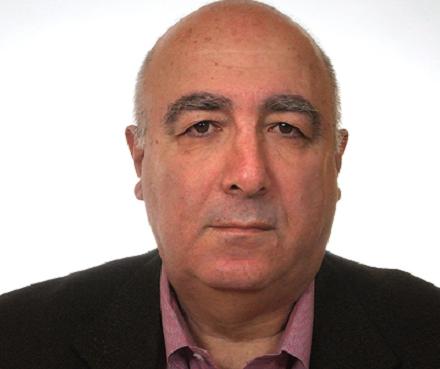
For many in the West, Mikheil Saakashvili remains the poster child of the Rose Revolution, an uncompromising promoter of democracy and defender of his country against Russia, and the incoming Prime Minister Bidzina Ivanishvili is viewed as a shadowy and authoritarian oligarch with pro-Russian leanings. Neither of these images is true, and it time to set the record straight.
Since the parliamentary elections, which by the way Saakashvili’s party lost and Ivanishvili’s Georgian Dream won, the lame duck Georgian president has repeatedly said that Russian President Vladimir Putin is “happy” about those results. And he has done so in order to distract attention from a reality that for him is most unpleasant: Georgians voted for the Georgian Dream because Saakashvili has been leading his country into a dead end, striking poses against Moscow abroad and increasingly imposing an authoritarian and disastrous rule at home.
This dishonesty is bad enough, but Saakashvili’s use of his media machine to distort the historical record points to an even more dangerous development: He has no intention of accepting the vote for what it was – the repudiation of what he has done in office – and instead is doing everything he can to undermine the voice of the people and to maintain himself in power.
What is truly frightening is that the president appears to be getting away with this, at least in the eyes of the West, most which appears to be willing to ignore the well-documented reports of Saakashvili’s abuse of the opposition, his government’s responsibility for torture in Georgian prisons, and other shortcomings in his version of Georgian “democracy.”
At the same time, many in the West continue to accept Saakashvili’s portray of Mr. Ivanishvili as something between James Bond and the count of Monte Cristo. And they continue to think that the victory of his Georgian Dream movement was some kind of surprise, something that happened because of the Saakashvili’s commitment to democracy rather than the Georgian president’s open indulgence in electoral fraud before and during the vote. Few of these people have bothered to read the Georgian Dream platform, preferring to accept on faith Saakashvili’s assertion that it is “vague” despite its provisions about economic reform, the rule of law, and a commitment to making Georgia a reliable regional player.
It is time for everyone to recognize that there has been a peaceful transfer of power not because of Saakashvili’s commitment to democracy but despite all odds. Consequently, Western observers and Western governments need to recognize that Saakashvili’s spin notwithstanding, the new Georgian Dream-led government won’t be engaged in shadowy activities and media campaigns but rather will work to bring down chronic high unemployment, end widespread corruption, help the thousands of refugees now living in limbo, and improving the country’s balance of payments.
These steps, and not President Saakashvili’s striking anti-Russian poses, will make Georgia a better place for its people and a more reliable regional partner for Western countries. But Georgians will succeed on both counts only if the West understands that Mr. Saakashvili’s current media campaign against Mr. Ivanishvili and the Georgian Dream are not intended to make Georgia a more dynamic democratic society but rather simply to maintain himself and his regime in power. It would be a tragedy if someone so often described as a supporter of democracy should succeed in undermining democracy because those who should best understand what he is doing fail to do so.


Tedo Japaridze, may your words fly straight away to God’s ears!
Dear Tedo,
Tell Lincoln to be more sensitive when he writes articles for you. Now it seems as like Lincoln and not you at all. It seems less persuasive and honest.
Kind regards, Benjamin